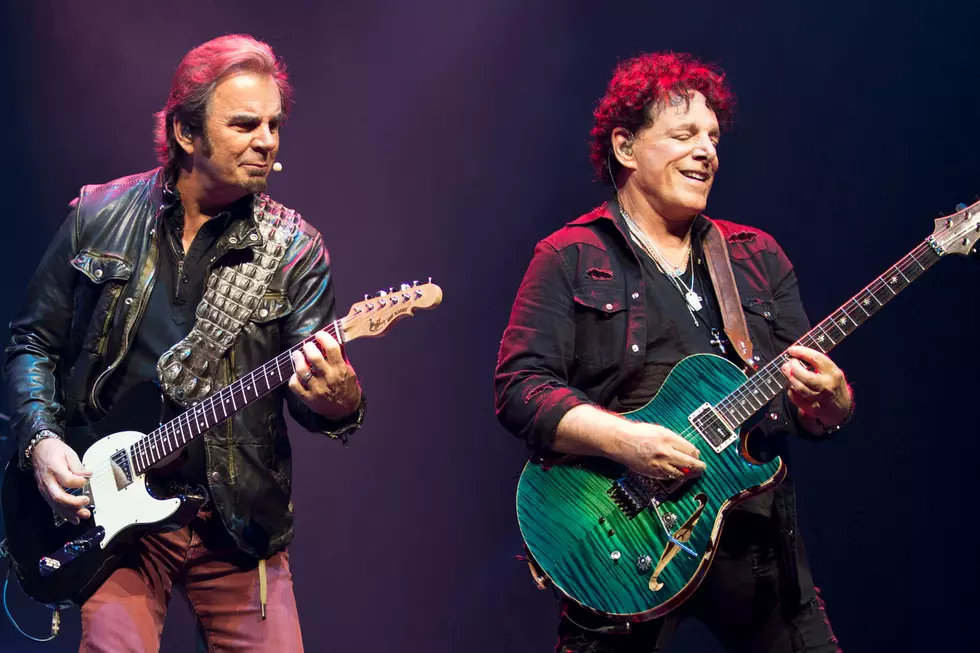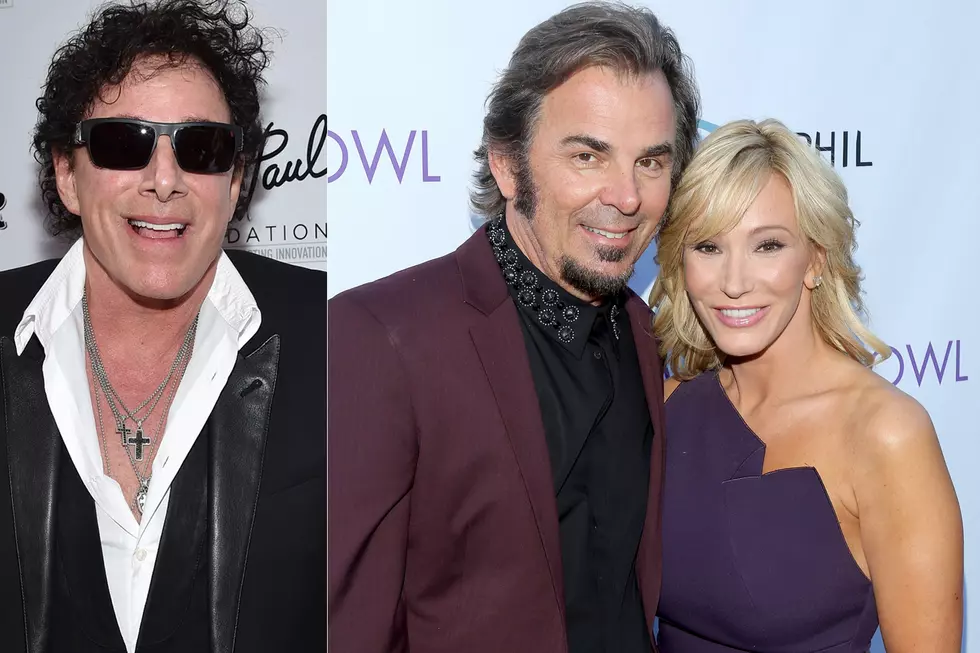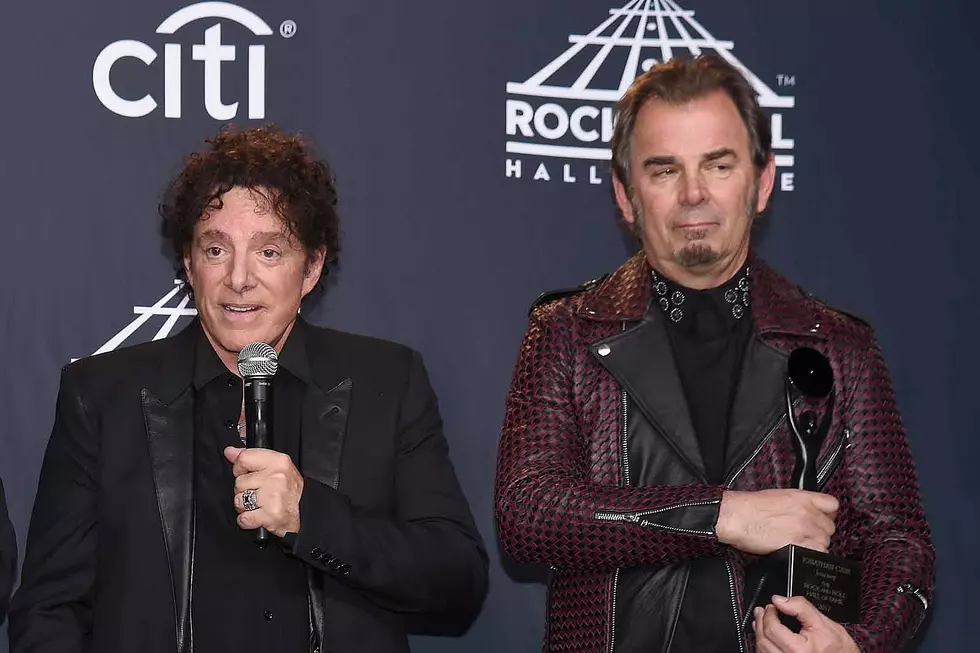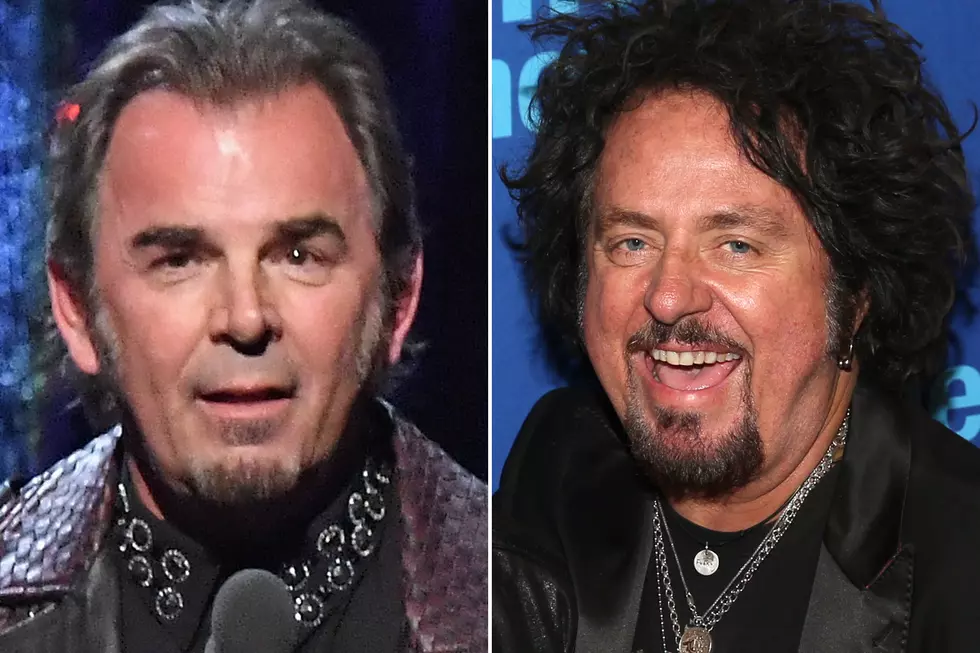
How Jonathan Cain Helped John Waite Take Center Stage in the Babys: Exclusive Interview
Jonathan Cain's celebrated tenure in Journey will likely lure plenty of fans to his just-published memoir. Even the title – Don’t Stop Believin’: The Man, the Band and the Song That Inspired Generations – serves as a tip of the hat. But Cain's career also included a notable stop with the Babys, as well as solo work stretching back to the mid-'70s.
In this exclusive UCR interview, Cain discusses the challenges he faced at the beginning of his career, a key solo collaboration from the '80s and the role he played in transforming John Waite into a popular singer.
You released your debut solo album, Windy City Breakdown, on Bearsville Records in 1977. You mention in the book that Albert Grossman, the president of the label, wasn’t a fan of the LP. How do you look back on it?
It was a learning experience. I feel that if we would’ve simply made that record in L.A., it would’ve been fantastic. It would’ve been so much better. I just felt like it was unnecessary to do it. I think we could’ve done it in half the time, and I think I just would’ve been in a better frame of mind. You can’t take city boys and put ‘em out in the woods, you know? [Laughs] It just doesn’t work. Especially when it’s a studio that has as many issues as that one. I mean, I’d been doing demos at Quantum Studios in Torrance, Calif., where Rufus recorded “Tell Me Something Good” and Three Dog Night worked. I had a great situation over there. My friend, [Quantum owner] Donnie Sciarrotta, he would’ve loved to have made that album. That’s one thing I would’ve changed. But, hey, it was a good learning experience. It cuts deep when they’re telling you that they’re not going to release your album. And everything that could’ve gone wrong in the recording process just about did, or at least it felt like it, anyway. But you’ve got to have one of those. The process of creation, it’s a trial-and-error thing, and you’re gonna get the disappointment and the rejection along the way. I’m just glad that it actually came out.
Listen to Jonathan Cain's 'Windy City Breakdown'
You’ve guested on a lot of other people’s songs. Do you have a favorite?
I’d have to say [1986's] “Working Class Man,” by Jimmy Barnes, was probably the biggest single thing that I’ve ever done. It was No. 1 for months in Australia. The sailing team, Kookaburra III, it was their theme song, and it ended up being sung by Jimmy at the Olympics during the closing ceremony. I was, like, “How much better does it get?” And it’s a tribute to my dad too. So, it’d have to be that one.
It’s also interesting that it’s an adaptable enough song that Lacy J. Dalton covered it.
Yeah, right? [Laughs] Lacy J.! She was a sweet lady. I had a lot of fun with that. My accountant was her accountant, so that’s our connection. I was plugging into a lot of different places. It was fun back in those days. It seemed like people were more open to writing with other people.
Once you found your way into the Babys, that situation seemed to move pretty fast, if not arguably too fast at times.
Yeah, it did. There was this writing partner of mine who came about because of the Bearsville record deal: Robbie Patton, who was writing for MCA Music, which was part of Fiction Music, which had those songs. He called me and said, “I like your album. Let’s write.” So, it was really through the Bearsville project that I got the Babys audition. I wouldn’t have known about it, and I probably would’ve have gone if I hadn’t been convinced by Robbie. I think sometimes how important that decision to go and actually audition was, because that led to so many other doors opening, including Journey and John Waite. He was the guy who was going to show me some things, and he showed me a lot. I learned a lot from that experience, for sure. I mean, I was selling stereos a year before that, and not even six months later, I’m on the road with Alice Cooper! [Laughs] We’re playing before 10,000 people, flying around in his plane, living the life of a rock star.
Yeah, that’s not a bad deal.
No, I’d gladly trade in my Cal Stereo vest for that. [Laughs] Sometimes, you don’t have to wait your whole life. If you work hard enough and you believe in what you’re doing, sometimes doors open pretty quick. And that’s kind of what happened to me. When you’re in L.A., you have to get your butt kicked, and I’d done that for three years. I didn’t know what I’d done wrong at that point. But when I look back at it, I just wasn’t there yet as a writer.
Listen to the Babys' 'True Love, True Confessions'
Looking back at your time with the Babys, is there any track you did with them that you’d consider underrated?
Geez, I dunno. [Long pause] God, they’re all fun, you know? I love “True Love, True Confessions.” I think John wrote it about him and Britt Ekland. When I joined the band, he had a little something going on with her, and after being Rod Stewart’s girlfriend for two years, it was the talk of the town, and it was in the National Enquirer and you name it. But I love that song because it came out of this crazy affair that he had. “The Darker Side of Town,” that’s another one that still haunts me, because it’s got a real moody feel to it. That’s one that John and I wrote together.
He was so cool. He liked the song “Stick to Your Guns” that I brought in for my audition, and he knew I was a writer because he asked, “Who did you write that with? You and I are going to have to work some.” And we jumped right in. He really is one of the true great, spontaneous artists. He had it all going on. When I first saw John, I was, like, “Let’s get the bass out of your hands,” because he was playing bass and singing when I joined the band. He was miserable trying to do both things. I said, “John, I don’t even know how you’re trying to do this. I say let’s get a bass player.” So, I went and got Ricky Phillips from next door. Seriously, what are the odds that Ricky Phillips would be working the counter at the music store next door? “As a matter of fact, I do have my bass, and I’ll be over in half an hour!” So, in walks Ricky, he straps on his bass, and I see John completely unleashed as a singer. And I was, like, “So, I’m right! I knew it!” And I guess maybe the other guys probably thought about it, but it was just me being an outsider and being able to make the comment, and that really set him free. He turned out to be quite a frontman.
Meet the New Boss: Rock's Replacement Singers
More From Ultimate Classic Rock









